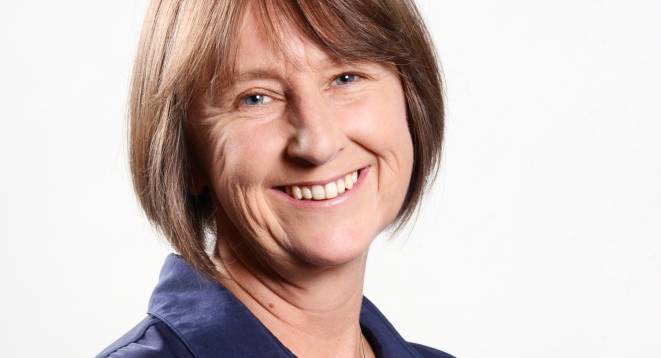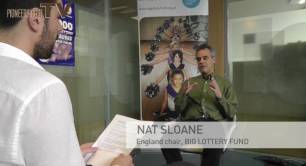BLF's Austwick: bold with entrepreneurship, cautious with social investment

At a breakfast press briefing today, new Big Lottery Fund chief executive Dawn Austwick firmly embraced entrepreneurship, highlighting it as a common feature of her favourite charities, but offered cautious words on social investment.
Dawn Austwick is a firm believer in entrepreneurship. Not the sort that drives undeterred towards profit, she makes clear, but “the get up and go vitality”.
The likes of UpRising, a charity focused on civic and youth participation, and Incredible Edible, a community growing project, she named among her favourite charities – and the one feature linking them, she said, was entrepreneurship.
Her own personal journey has made her a “jack of all trades”, from KPMG management consultant, to director of a struggling East End theatre, to chief executive of the Esmée Fairbairn Foundation, and now chief executive of the Big Lottery Fund (BLF) – she put her feet under the desk just six days ago.
Austwick’s transition from heading up a foundation at the vanguard of social investment to leading BLF, combined with a former role on the board of Big Society Capital also makes her well equipped to navigate the social investment marketplace. But she advised caution on the wielding of the social investment weapon.
“In the social investment space, my sense is that Big Lottery is fundamentally a grant funder, but with a role in helping support the sector to flourish – and social investment is a potential weapon in the armoury, or tool in the toolkit,” Austwick said.
Speaking from her experiences at the Esmée Fairbairn Foundation, Austwick said that in some cases using social investment was a better way to fund. But the foundation’s social investment pot contained just £25m available over the course of seven years, compared with the £30m to £35m offered every year in grants.
“The opportunity for social investment is smaller and the appropriateness of it is limited,” said Austwick. “It’s about the intelligent application of a new way of doing things and recognising that,” she continued.
In a mini appraisal of a social investment fund-seeker, Austwick outlined the sorts of questions the BLF would need to be asking, “What sort of work does this organisation do? Does it have intellectual property? Has it got an asset revenue stream? If it doesn’t have any of those things its difficult to see how a social investment model would fit.”
In a further point, Austwick raised the question of capability and size, acknowledging that the market hasn’t developed sufficiently for smaller organisations to benefit easily.
Austwick gave a wide berth to any future role as a directive funder and instead set BLF on a course “to help that nascent development, encourage organisations to think about social investment, and to help equip the sector to actually to make judgements about when it is and isn’t appropriate to use it.”
“We should be very wary sitting here with £700m up our sleeves every year telling an organisation with a turnover of £100,000 what it should and should not be doing,“ Austwick said. “It’s much more important that they tell us what we should be doing. Our role is to support that ecology, not direct it,” she continued.
Austwick also took up shadow charities minister, Graham Thomas’s recent suggestion at the Labour party conference that there should be a combined strategy for Big Society Capital, the Big Lottery Fund and the Charity Commission.
"I would put Big Lottery Fund and Big Society Captial in one place, but there needs to be a healthy distance from the Charity Commission as a regulatory body," she said.
From the perspective of a former Big Society Capital board member, and having had an active role in the social investment marketplace, Austwick said she felt there was a close working relationship between Big Society Capital and the Big Lottery Fund.
However, at present, there is “an ongoing conversation about what Big Society Capital are trying to achieve in social investment, which is different to what we are trying to achieve, and how you can put the two together and find the some of the parts,” she said.
Austwick also highlighted a role for BLF in leading the sharing of knowledge to drive progress in the voluntary and community sector. Information-sharing technologies and open data would be on BLF’s agenda to help foster collaboration and conversation across the funding landscape, she said.


